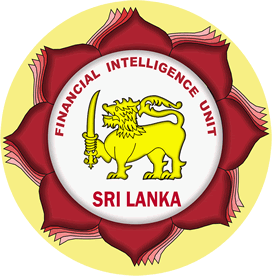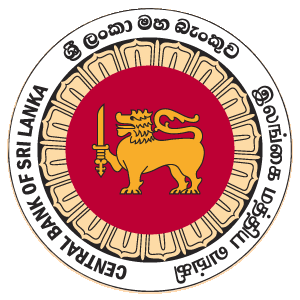It is essential for a country to have a comprehensive structure that facilitates information sharing among competent authorities locally and internationally as criminals especially money launders and terrorist financiers are believed to operate across borders. Therefore, sharing vital information facilitates investigation and prosecution of persons suspected of money laundering and terrorist financing which is mutually beneficial for the FIUs, government agencies and foreign counterparts contributing to achieve the ultimate objective of combating ML/TF and related crimes in Sri Lanka.
Sri Lanka contributes to the global effort in combating ML/TF and related crimes, by promulgation of three Acts incorporating requirements of FATF Recommendations. The FIU also adopted a strategy of building strong relationships based on mutual trust and confidence with counterpart FIUs through exchange of information, provision of legal assistance and entering into MOUs.
Financial Action Task Force (FATF)
In response to mounting concern over the money laundering, the Financial Action Task Force (FATF) was established by the G-7 Summit held in Paris in 1989. Recognizing the threat posed to the banking system and to financial institutions, the G-7 Heads of States and President of the European Commission convened the Task Force from the G-7 member States, the European Commission and eight other countries. The FATF is therefore an inter-governmental body whose purpose is the development and promotion of policies, both at national and international levels, to combat money laundering and terrorist financing. The Task Force is the “policy-making body” which works to generate the necessary political will to bring about national legislative and regulatory reforms in these areas.
Accordingly, the FATF has developed a series of Recommendations that are recognised as the international standard for combating ML/TF and proliferation of weapons of mass destruction. First set of recommendations were issued in 1990 and several subsequent revisions came up in 1996, 2001, 2003. Most recent amendments were made in 2012 to ensure that they remain up to date and relevant, and they are intended to be of universal application.
The FATF monitors members’ progress in implementing necessary measures, reviews ML/TF techniques and counter-measures, and promotes the adoption and implementation of appropriate measures globally. In performing these activities, the FATF collaborates with other international agencies involved in combating ML/TF.
Among international initiatives on preventing ML/TF, the United Nations Convention against Transnational Organized Crimes (Palermo Convention) requires, in terms of its Article 7.1 b, each member state to consider the establishment of an FIU to serve as a national center for the collection, analysis and dissemination of information regarding potential money laundering. The FATF established by G7 nations to serve as a policy making body also requires, under its recommendations, each country to establish an FIU.
The Egmont Group
URL: http://www.egmontgroup.org
Recognizing the importance of international cooperation in the fight against ML/TF, a group of Financial Intelligence Units (FIUs) met at the Egmont Arenberg Palace in Brussels, Belgium, and decided to establish an informal network of FIUs for the stimulation of international co-operation. Now known as the Egmont Group of Financial Intelligence Units, Egmont Group of FIUs meet regularly to find ways to promote the development of FIUs and to cooperate, especially in the areas of information exchange, training and the sharing of expertise.
The Egmont Group has evolved over the years and is currently (2023) comprised of 166 member FIUs. The FATF Recommendations expect that FIUs apply for membership with the Egmont Group, therefore, the Egmont network of FIUs is expected to grow even further in the coming years.
The goal of the Egmont Group is to provide a forum for FIUs around the world to improve cooperation in the fight against ML/TF and to foster the implementation of domestic programmes in this field. This support includes:
- Expanding and systematizing international cooperation in the reciprocal exchange of information;
- Increasing the effectiveness of FIUs by offering training and promoting personnel exchanges to improve the expertise and capabilities of personnel employed by FIUs;
- Fostering better and secure communication among FIUs through the application of technology, such as the Egmont Secure Web (ESW);
- Fostering increased coordination and support among the operational divisions of member FIUs;
- Promoting the operational autonomy of FIUs; and
- Promoting the establishment of FIUs in conjunction with jurisdictions with an AML/CFT programme in place, or in areas with a programme in the early stages of development.
The FIU Sri Lanka obtained the membership of the Egmont Group on 26 May 2009. The membership of the Egmont Group enables the FIU to develop vital relationships to facilitate exchange of financial intelligence with other FIUs and foster global partnerships in combating ML/TF. The FIU officials are actively participating in Annual Plenary and various working group meetings of Egmont Group since obtaining membership in 2009.
Asia / Pacific Group on Money Laundering (APG)
URL: http://www.apgml.org
APG is an autonomous and collaborative international organization founded in 1997 in Bangkok, Thailand. This group currently consists of 41 members and number of international and regional observers. These members and observers are committed for the effective implementation and enforcement of internationally accepted standards against ML/TF. The APG conducts mutual evaluations of its members to determine whether they comply, or to what extent they comply, with their obligations to implement the global AML/CFT standards. Some of these evaluations are conducted jointly with other AML/ CFT bodies such as the FATF, the International Monetary Fund, the World Bank and the Offshore Group of Banking Supervisors.
Sri Lanka as a founder member of Asia Pacific Group on Money Laundering (APG) attended all Annual Meetings as well as Annual Typologies Workshops held during the previous years. The FIU is in continuous dialogue with the APG in relation to International Co-operation Review Group - (ICRG) review process and capacity building requirements of the FIU.

